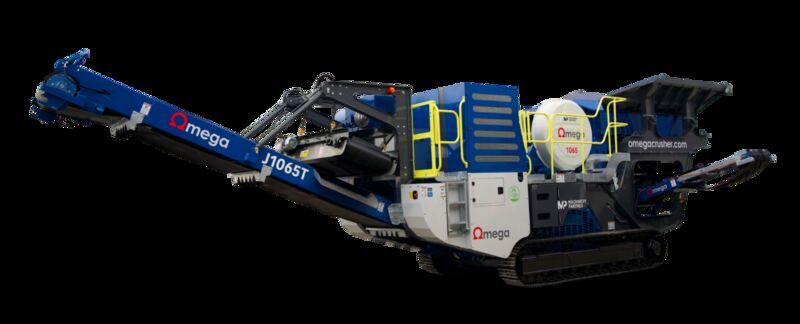In the world of industry and construction, crushers stand as unsung heroes, transforming the way we process materials. These powerful machines are vital in breaking down large rocks, stones, or other materials, making them smaller, manageable, and more usable.
Know all about crushers, the incredible versatility and applications of crushers, from construction to mining, and even recycling.
What is a Crusher?
A crusher, often simply referred to as a “crusher,” is a mechanical device used to reduce the size of large rocks, stones, or other materials. They come in various types and sizes, each designed for specific applications.
What are the Different Types of Crushers?
- Jaw Crushers: These crushers use a compressive force to crush materials. They are commonly used in the mining and construction industries and are known for their efficiency and reliability.
- Cone Crushers: Cone crushers are designed to crush materials by squeezing them between a mantle and a concave. They are ideal for secondary and tertiary crushing in the mining and aggregate industries.
- Impact Crushers: Impact crushers use impact force to crush materials. They are often used in recycling applications to break down concrete and asphalt.
- Gyratory Crushers: Gyratory crushers are known for their high capacity and are typically used in large mining operations.
- Roll Crushers: Roll crushers use compression to crush materials and are commonly used in the coal and mining industries.
What are the Applications of Crushers?
- Construction: Crushers are indispensable in the construction industry, where they are used to break down large rocks and stones to create building materials like gravel, sand, and crushed stone.
- Mining: In mining, crushers are used to extract valuable minerals and ores by reducing the size of rocks, allowing for easier processing and extraction.
- Recycling: Crushers play a crucial role in recycling facilities, where they are used to crush concrete, asphalt, and other materials for reuse in construction.
- Agriculture: Crushers are used in agriculture to break down organic matter, making it easier to compost or use as mulch.
- Manufacturing: Crushers are utilized in manufacturing processes to reduce the size of raw materials and facilitate the production of various products.
What are The Advantages of Crushers?
- Efficiency: Crushers automate and streamline the material reduction process, saving time and labor costs.
- Consistency: They ensure a consistent product size, reducing the need for additional processing and sorting.
- Cost Savings: Crushers reduce costs associated with manual labor, transportation, and processing, making them a cost-effective solution.
- Environmental Benefits: Crushers support recycling and reduce waste disposal costs, contributing to a greener planet.
- Increased Productivity: On-site material processing increases productivity by eliminating the need for transportation to central processing facilities.
- Safety: Crushers are equipped with advanced safety features, making them a safer alternative to manual crushing.
Crushers and Innovation
The crusher industry continues to evolve and innovate. With advancements in technology, crushers are becoming more efficient, reliable, and eco-friendly. Here are some recent innovations in the world of crushers:
- Automation: Many modern crushers come with advanced automation features that allow for remote operation, data monitoring, and optimal performance adjustments. This not only saves time but also improves safety and reduces operational costs.
- Sustainability: Environmental consciousness has led to the development of crushers that are more energy-efficient and produce fewer emissions. Additionally, there’s a growing trend of using crushers in recycling processes to reduce waste and promote sustainable practices.
- Customization: Crusher manufacturers are offering more customization options to cater to specific industry needs. This ensures that the crusher you choose is tailored to your operations, maximizing its efficiency.
- Safety Features: Continuous improvements in safety features make crushers safer for operators. These features include automatic shutdown mechanisms and advanced warning systems to prevent accidents.
What is The Future of Crushers?
The future of crushers is bright, with ongoing research and development promising even more benefits for various industries. Some trends and possibilities on the horizon include:
- Energy Efficiency: Researchers are working on developing crushers that are even more energy-efficient, reducing operational costs and environmental impact.
- Smart Crushers: Integration with the Internet of Things (IoT) and data analytics will lead to smarter crushers that can self-optimize and predict maintenance needs, further improving reliability and efficiency.
- Material Innovations: New materials and designs are being explored to improve the durability and longevity of crusher components, reducing downtime and maintenance costs.
- Environmental Sustainability: Crushers will play an even more significant role in recycling and repurposing materials, contributing to a more sustainable future
Conclusion
Crushers are versatile machines that are revolutionizing multiple industries by enhancing efficiency, reducing costs, and promoting sustainability. Their adaptability and varied applications make them a crucial asset in the world of industry and construction.
Whether you’re in mining, construction, recycling, or any other sector, crushers are a game-changer that can elevate your operations to new heights.


